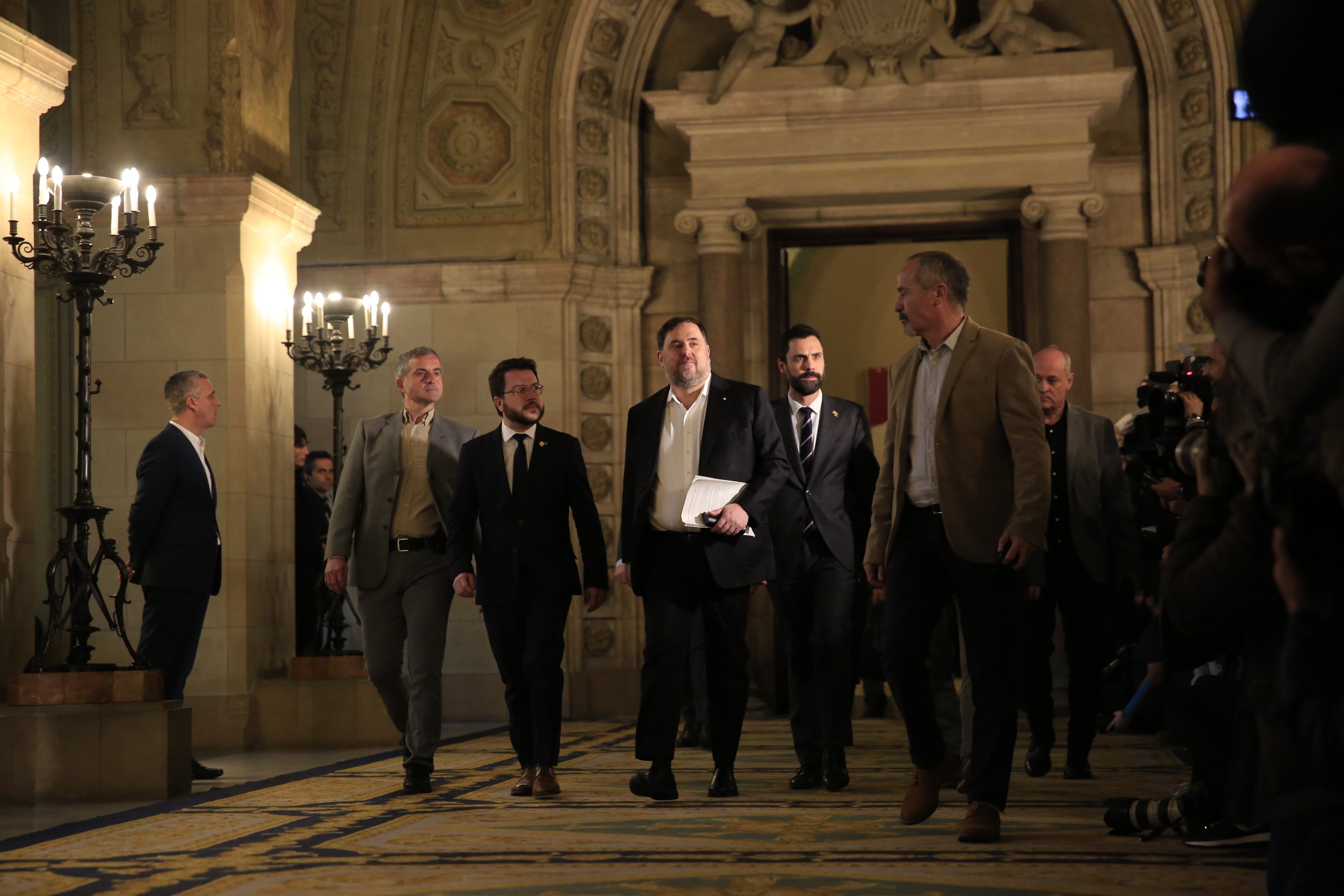Exactly a month ago, Oriol Junqueras's father and wife presented a petition to a court in the Catalan city of Manresa, calling for the pro-independence leader to be released on the grounds of habeas corpus, a legal recourse under which immediate release can be claimed if a prisoner is shown to be the victim of illegal detention. The request was rejected after no more than five hours. The judge dismissed it on the grounds that Junqueras has already been convicted with a sentence that is final in terms of the Spanish justice system. However, what is not yet final is the habeas corpus decision, and the former Catalan vice president's defence team has now appealed it.
Habeas corpus provides that a person in custody can ask to be brought before a court if they believe their detention has been arbitrary, and the judge is obliged to investigate and order the prisoner's immediate release should the demand be upheld. In Junqueras's instance, the judge argued that this was not the case, because, she ruled, Junqueras's current imprisonment was a consequence of being found guilty of sedition on October 14th 2019.
Junqueras's family and defence, on the other hand, assert that since the European Court of Justice (ECJ) ruled in December that the Catalan politician had held immunity from prosecution as an MEP from the moment the results of the European elections were proclaimed last June, his imprisonment is irregular, because a request had to be made to the European Parliament to waive his immunity before he could be put on trial.
"This judge may or may not have doubts about the extent of the European parliamentary immunity declared by the ECJ, but what she cannot do is to refuse to allow consideration about the illegality of a deprivation of liberty which is classified as irregular," affirms the appeal. It adds that resolutions of European justice prevail over rulings made by Spanish courts. And it specifies that "maintaining a person in prison or continuing court proceedings after he is elected as an MEP without the authorization of the European Parliament" implies a violation of his immunity and of his fundamental rights to freedom, a fair trial and political representation".
In this new submission, then, defence lawyer Andreu Van den Eynde puts the emphasis on the breaching of his client's fundamental rights and warns of the "irreparable harm" that this could entail.

